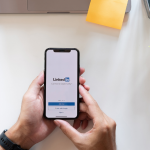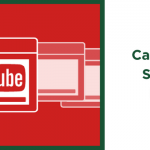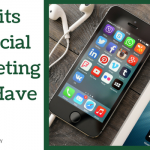Sweeping privacy changes are coming to Facebook, Google, and Instagram. What does this mean for the brands and clients that you manage? Well…quite a lot.
Here are the six big questions that you should be asking yourself as these changes begin to hit, as well as my observations and recommended solutions!
1) Why are the changes to Google and Facebook’s privacy policies significant for brands and affiliates to take note of?
For Facebook, it will impact our ability to accurately track and add to retargeting audiences. This is going to cut deeply into a marketer’s ability to remarket or retarget on Facebook and their sister platform, Instagram.
There will also now be more general ad events than specific ones. So “purchase” will override “add to cart” in reporting. So you will have a max of 8 events per domain. And the new default for mapping user journeys is a simple 7-day click-through attribution.
For Google, we’ll have less data and thus less insight into our conversion metrics. Google Chrome is also removing cookies from its browser.
2) What is going to change when these updates are in place? How will it affect advertising campaigns for operators and affiliates?
Our ad strategies will need to shift quickly and focus on more general platform options and less data. Advertisers will need to pivot their strategies and find out how to fill in the blanks and keep a closer eye on ads more than normal—no “set it and forget” for a while.
3) What are some of the measures we can put in place now to support our businesses through these changes and keep momentum on traffic-driving activity?
Here are some things you can do immediately…
- Shift audience-building strategies (like Custom Audiences, Lookalike Audiences) or Interest-based audiences.
- Prioritize events and conversions: choose the best 8 events and make sure they provide the most telling data.
- Refocus your metrics: you will need to learn to interpret your results differently. Look at metrics that you may have overlooked, including vanity metrics such as link clicks, website visits, and other on-Facebook metrics. This will help you bridge the gap.
- Update Google Analytics for Firebase to support the new SKAdNetwork tracking tool.
4) What tips can you give to affiliates or affiliate/digital marketers managing paid media budgets right now to get maximum ROI on campaigns they might be running?
Focus on new audience-building strategies immediately and rework your events on your website. Understand that you will see some very steep drops in the results of your campaigns. So manage the expectations of your clients in advance. I would suggest having calls with your clients to explain how this will affect things.
Finally, think out of the box and try new advertising venues you’ve ignored in the past. Facebook Lead Forms (and other on-site activities) are great conversion tools!
5) We all know that COVID has impacted budgets, but what are you seeing now as we come out of lockdown? How are companies, brands, affiliates doing things differently now to keep brand reach and customer engagement in the paid media space?
They are much more attuned to the many different metrics and ways to execute campaigns: reporting, conversion, pixel-related items, and integration of shops. I have seen a lot of them get more involved in learning how these changes will affect them rather than burying their head in the sand.
6) What big changes do you foresee in 2022 around paid media, cookieless tracking, and the evolution of technology and data impacting the way we plan media campaigns for acquisition results?
I think we will see a shift to more interest-based audiences and brands not putting all of their money in Facebook, Instagram, and Google but trying other methods.









